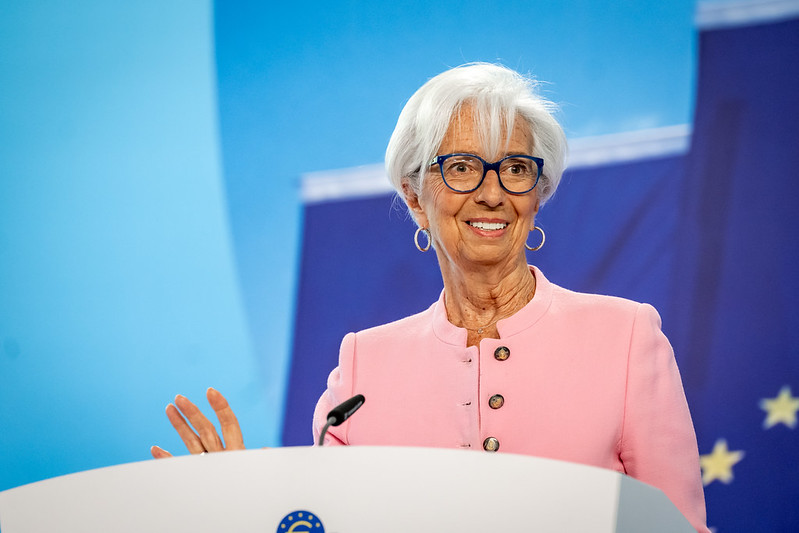ECB’s Lagarde: “Risks to Inflation Appear Quite Contained in Both Directions”
30 September 2025

By David Barwick – HELSINKI (Econostream) – European Central Bank President Christine Lagarde on Tuesday said that monetary policy remained in a good place, with little inflation impact from tariffs and inflation risks to both the downside and the upside well contained.
“I have said that we are in a good place,” she said in a speech at the Bank of Finland’s 4th Monetary Policy Conference. While mainly referring to the inflation shock, “now essentially over in the euro area,” there were reasons for it to be valid of “the current situation” as well, she said.
One was that “trade shocks are not creating new inflationary pressures,” leaving the ECB unencumbered by the usual trade-off between growth and inflation, she said.
Another was that “the risks to inflation appear quite contained in both directions,” she said.
Finally, rates at 2% left the ECB “well placed to respond if the risks to inflation shift,” she said.
Still, the environment was a difficult one, she said, and policymakers needed to consider known and unknown unknowns.
“Firms are still running down inventories and absorbing the shock in margins, so the full effects of US tariffs have yet to become clear,” she cautioned.
The large increase in US tariffs applied to European goods had not led to the “major adverse shock” to Europe’s economy that one would have thought, she said. The ECB itself at the end of last year assumed that a combination of reciprocal tariffs, euro depreciation and high uncertainty would follow the imposition of US tariffs, she said.
“Yet some of these assumptions have not been borne out,” she said, the tariffs having been less an isolated variable than “a symptom of a broader geopolitical shift” that exceeded the capacity of standard models.
The absence of retaliation meant that the euro area had “not yet seen significant supply chain disruption,” she said. “If anything, rather than blocked supply chains, the euro area is facing rising imports.”
Meanwhile, the stronger euro, though “an additional drag on growth,” had dampened imported inflation as markets questioned “whether the US dollar would continue to warrant its status as the ultimate safe-haven currency,” she said.
Only uncertainty had approximately lived up to expectations, with the cumulative growth impact of tariffs and uncertainty about 0.7pp between 2025 and 2027, she said.
“Still, these effects have not been as strong as we anticipated,” she said, trade uncertainty having dissipated more quickly than anticipated and the euro area having implemented growth-enhancing measures.
In this context, Lagarde predicted that government investment would compensate for about a third of the trade shock and add 0.25pp to growth over the next two years. As well, she noted the pursuit by Europe of new trade deals.
“All in all, with no retaliation and an appreciating exchange rate, tariffs have had little inflationary impact so far, with their adverse effects mainly limited to growth,” she said. “Those effects, however, have been relatively moderate thanks to the domestic response.”
Risks to inflation were currently “two-sided,” she said, but within a range that more recently had narrowed on both sides, especially given the lack of reciprocal tariffs.
Were the trade conflict to flare up again, 2027 inflation would be “moderately lower” in the view of ECB staff, she said. Increased defense outlays would produce “only modestly” higher inflation, she said.
ECB staff had also considered the potential impact of lower Chinese export prices as well as more severe supply chain constraints, she said. “In both cases, however, the impact would be limited under reasonable assumptions, with inflation in 2027 differing by only 0.1-0.2pp,” she said.
The ECB, also on the basis of its scenario analysis, had assessed growth risks from the US tariffs to be to the downside, she said.
“This tilt in the risk balance remains roughly in place today,” she said. “But at our last meeting, we judged risks to growth to be more balanced, because the likelihood of major tariff-related downside risks materializing had fallen owing to the new trade deal,” she said.
